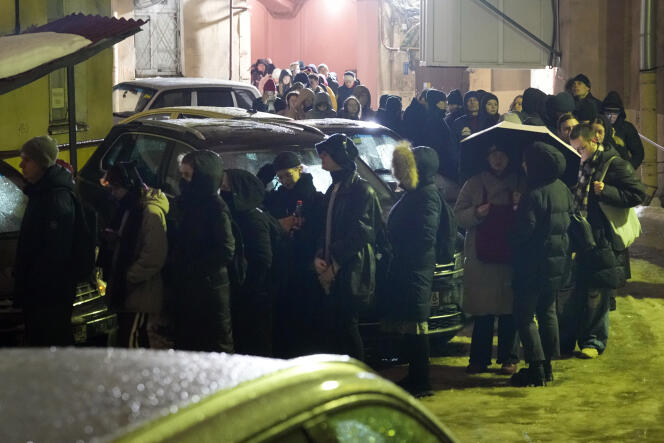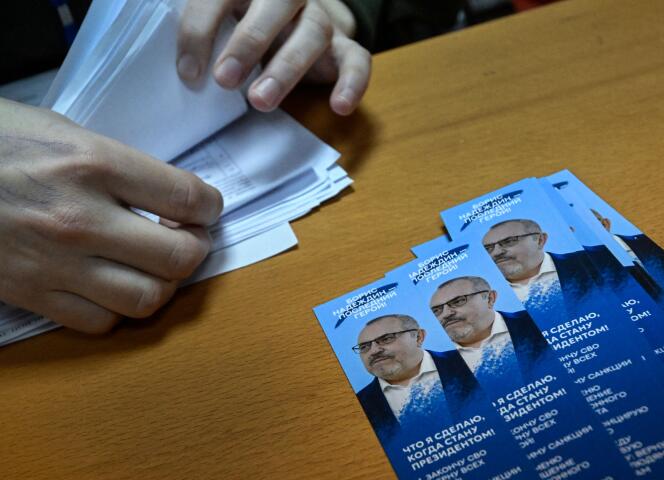


There is something unusual about the enthusiasm Boris Nadezhdin is generating. A veteran of Russian politics with little charisma and ignored by television news, this opponent of Vladimir Putin is not even guaranteed a place in the presidential election, even though it is a foregone conclusion. And yet, he is drawing crowds. The one that snaked its way through a quiet alleyway in central Moscow on the evening of Tuesday, January 23, as the polls closed, was impressive. Several hundred people waiting in the cold, passports in hand, divided into three long queues according to their official place of residence: Moscow, Moscow region and other regions.
The last queue was the longest, stretching 150 meters along the snow-covered sidewalk. It was also the most strategic. A few hours earlier, the 60-year-old candidate announced that he had managed to collect the 100,000 signatures required for his candidacy in the March 15-17 presidential election, but the law imposes a quota by region. "In Buryatia, where I am registered, the 2,500-signature mark has not yet been reached," explained Galina Fedorova, a 38-year-old employee of a large company, waiting in line.
Like many of those who had come to support him, this woman didn't know much about Nadezhdin, apart from the most salient points of his political agenda: immediate peace negotiations with Ukraine (the war was "a fatal mistake" for Russia, he believes); the return of mobilized soldiers; and the release of political prisoners. "It's more than enough for me to know that he's against Putin and the 'special operation,'" said Fedorova.
Since the beginning of January, such queues have been seen throughout the country – even in Yakutia, with temperatures reaching -45°C – and also abroad, for exiles. After the ousting of former journalist Yekaterina Duntsova, who was also an anti-war candidate in the presidential election, the desire for dissent among part of the Russian public has shifted to Nadezhdin. Volunteers and donations are pouring in, and signature collection points have been set up in 200 cities.

The precedent of Duntsova, who was disqualified even earlier because of alleged "errors" in the official documents submitted to the electoral commission, also serves as a reminder that Nadezhdin, a physicist by training and a veteran of liberal parties, is unlikely to be included in the election ballot. For a decade, collecting signatures has been the authorities' favorite weapon for disqualifying undesirable candidates in every possible election – invented or real mistakes (a misspelled address, for example) are enough to ban participation.
You have 60% of this article left to read. The rest is for subscribers only.
